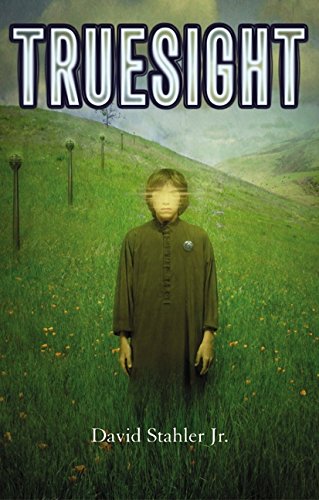
LitPick Review
Any story featuring a group of people who are determined to create a utopian society is bound to raise some serious questions. But Truesight by David Stahler Jr. takes provocative to the next level.
For generations, the inhabitants of the colony Harmony have genetically engineered themselves to be blind. In a society that believes sight leads only to corruption and temptation, thirteen-year-old Jacob is horrified when he suddenly becomes able to see. Jacob has always been disturbed by his best friend Delaney's criticism of the values of the community, but when he attains the faculty of vision he begins to see what really goes on in his town, developing doubts of his own. Already reeling from the shock of being able to see, Jacob is told that Delaney has committed suicide, and his life is thrown into complete turmoil. The drama heats to the boiling point when his secret ability is discovered by others in his community. These people decide that his vision must be "corrected," informing him that he will need surgery to again become blind.
Opinion:
Though constructed around some very serious issues, this book offers great opportunities for moral development for mature teens and young adults. Rather than avoiding controversial issues, Stahler has opened the door for the honest discussion of everything from advanced scientific technology to social ostracism.
What makes this story appealing, rather than just challenging, is the setting. Harmony is one of two communities founded on Earth and sent to live and develop on a satellite planet. This community has developed amazing technologies to facilitate the lives of the blind. Because the inhabitants are determined to live independently from seeing societies, unusual equipment was fabricated. Featuring everything from advanced tracking tools to personal sounding devices invented to alert the user to the presence of others, this novel is a science-fiction lover's dream.
The only hitch worth mentioning is that the reader can never be sure whether there is meant to be romantic tension between Jacob and Delaney or between he and his classmate, Beth, or perhaps both. The romantic tension remains unresolved in the end and though the events that imply the tension contribute meaningfully to the story, to a degree they take away from the plot.
The most impressive tidbit about this stimulating and entertaining novel is the fact that it is Stahler's first. A treasure for anyone with a taste for the out-of-the-ordinary, this book is sure to leave his readers anxiously awaiting future publications.


